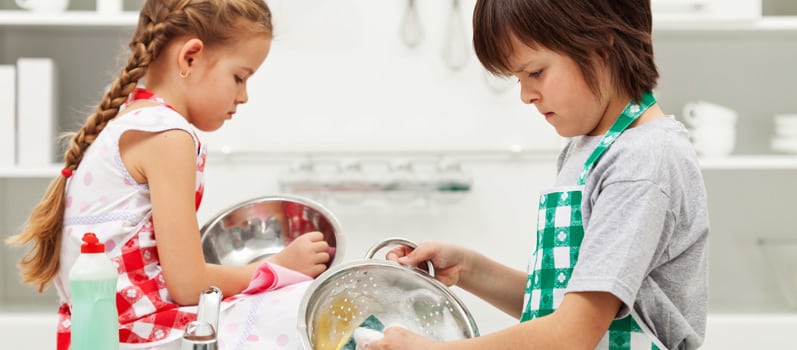
Childhood Development: Chores & Responsibilities
Most children are capable of doing some type of chores. By middle childhood, children are able to keep their rooms clean. Even younger children in the preschool and toddler years can help straighten and clean areas, and help with smaller tasks like putting away clean laundry. In addition to being potentially convenient for the caregiver that cleans the rest of the home, expecting your child to complete some chores and responsibilities places him in charge of his own belongings and living area.
Responsibility
Giving your child responsibilities around the house provides her with a sense of self-worth. By placing her in charge of keeping her room clean, she learns responsibility for her living area and belongings. This sense of responsibility can also extend elsewhere, to other chores, schoolwork, and her personal life as she gets older.
Health
Once your child is placed in charge of keeping his room clean, it is especially important to his health that he stays on top of his responsibility. That’s because dust is a trigger of health issues like allergies and asthma, and accumulates in carpet and fabrics. If your child doesn’t keep his room clean, it can eventually become a place that is unhealthy for sleeping and playing.
The responsibility of keeping his room clean also gives your child a sense of pride in his belongings since he is in charge of their care. Additionally, offering your child an allowance for completing chores can help to teach him about money management.
Recommendations
If you assign your child the task completing certain responsibilities and chores, make sure to set realistic expectations for its cleanliness and how often you want him to do chores in general. Set reasonable and consistent consequences if he doesn’t follow through, and offer positive comments when he succeeds so that he can learn the value of work in a positive way. Finally, be a role model by keeping your own areas clean, and demonstrate the value of organization and structure.









